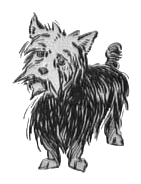 |
The Roman Catholic Primate Cathedral of Saint Mary of Toledo
(Catedral Primada Santa María de Toledo) |
I have heard "Holy Toledo" used as an exclamation of surprise, as in "Holy Toledo, have you seen the price of that stock today?" On the old Batman television show, Robin was rather fond of using 'Holy' sayings during the show. It is a rather old-fashioned expression but its origin is much older.
The expression does refer to Toledo, Spain (not Toledo, Ohio, USA) which became one of the great centers of Christian culture after its liberation from the Moors in 1085. It was the city where Christianity got its first hold in Spain and is often called the Holy City of Toledo in literature.
I'm not sure how relevant it is to the origin, but I also read that Toledo steel was used in medieval swords and was renowned for its quality, and some of those Holy Toldeo swords were used to fight the Infidels.
But there are odd other usages of the expression that are less than religious. For example, in show business, "Holy Week" (the week leading up to Easter) was once considered the worst week at the box office and a Hollywood joke was that any week in Toledo, Ohio was a "Holy Week."
The American city of Toledo was anything but "holy" and in the 1920s and 30s it a sanctuary for gangsters. They seemed to have made a deal with the police that if the police would leave them alone, they would leave Toledo alone. To gangsters, this sanctuary was known as "Holy Toledo."
There is a larger group of "Holy ____!" expressions in English, such as "Holy cow!", "Holy mackerel!" or "Holy smoke!" all of which are used as exclamations of surprise.
"Holy Mackeral" seems to go back to the early 1800s and might have been a euphemism for Holy Mary. It has been suggested that "Mackerel" was a nickname for Catholics because they ate the fish on Fridays or that the practice of selling mackerel only on Sundays in the seventeenth century (its quality deteriorates rapidly) made it be known as a "holy" fish.
From the Dictionary of American Slang (1960):
"Holy Buckets!" Equiv. to "Holy cats!" or "Holy Mike!" both being euphemisms for "Holy Christ!". This term is considered to be very popular among teenagers, and most teens claim it is definitely a very popular phrase. It is also the common oath and popular exclamation put into the mouths of teenagers by many screenwriters, and is universally heard on radio, television, and in the movies. It was first popularized by the "Corliss Archer" series of short stories, television programs, and movies, which attempted to show the humorous, homey side of teenage life.
 |
| Incense burner |

As far as the use of "Holy smoke!" according to the OED, Sir John Beaumont in 1627 writes: “Who lift to God for us the holy smoke / Of fervent prayers”. The idea being of a burnt sacrifice or incense is a metaphor for the carrying of one's prayers up to heaven.


The phrase "Holy cow!" and other similar expressions can be not only an exclamation of surprise but also a minced oath or euphemism for an actual expletive. (Not that you won't hear "Holy shit" and other literal expletives too.) As a way to avoid using obscene or indecent language, it probably alluded to the holiness of cows in Hinduism and other religious traditions.
It was popular with baseball players going back to the early 1900s and was associated with several American baseball broadcasters. Growing up in the NY-metro area as a NY Yankees fan, I always associated it with Yankees shortstop and announcer Phil Rizzuto. He used the expression in a variety of poetic contexts. When the Yankees honored him following his retirement, the ceremony included a real cow with a halo prop on its head.
































